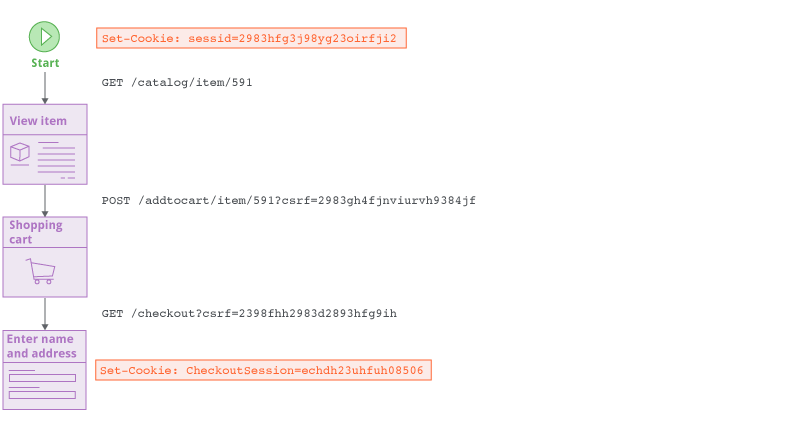One limitation of Burp's current Spider tool relates to session handling. It works well with simple cookie-based session handling mechanisms. But it fails in other situations, including many usages of CSRF tokens, and multi-step processes that must be performed in a specific order. You can work around some of these limitations by recording macros and configuring suitable session handling rules, but this is often tedious and error prone.
Burp's new crawler handles sessions automatically. Because it navigates around a target application in the same way as a user with a browser, it is able to automatically work with practically any session-handling mechanism that browsers are able to deal with. There is no need to configure session handling rules telling Burp how to obtain a session or verify that the current session is valid.
The new crawler employs multiple crawler "agents" to parallelize its work. Each agent represents a distinct individual navigating around with their own browser. Each agent has its own cookie jar, which is updated when the application issues it with a cookie. When an agent returns to the start location to begin crawling from there, its cookie jar is cleared, to simulate a completely fresh browser session.
The requests that the new crawler makes as it navigates around are constructed dynamically based on the preceding response, so CSRF tokens in URLs or form fields are handled automatically. This allows the crawler to correctly navigate functions that use more complex session handling mechanisms, with zero configuration by the user:
